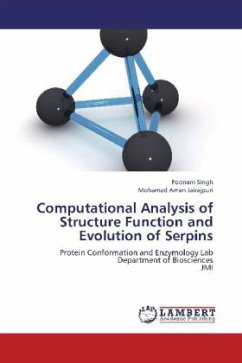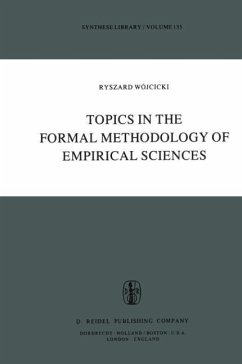
Computational Analysis of Structure Function and Evolution of Serpins
Protein Conformation and Enzymology Lab Department of Biosciences JMI
Versandkostenfrei!
Versandfertig in 6-10 Tagen
52,99 €
inkl. MwSt.

PAYBACK Punkte
26 °P sammeln!
Serine Protease inhibitors like antitrypsin, antichymotrypsin, C1-inhibitor, antithrombin and plasminogen activator inhibitor, play absolutely critical role in the control of proteinases, involved in the inflammatory, complement, coagulation and fibrinolytic pathways respectively, and are associated with diseases like emphysema/cirrhosis, angioedema, familial dementia, chronic obstructive bronchitis and thrombosis. The mechanism of inhibition of serpin requires large scale conformation change and native state of serpin is in a metastable state which transforms into a stable state when they inh...
Serine Protease inhibitors like antitrypsin, antichymotrypsin, C1-inhibitor, antithrombin and plasminogen activator inhibitor, play absolutely critical role in the control of proteinases, involved in the inflammatory, complement, coagulation and fibrinolytic pathways respectively, and are associated with diseases like emphysema/cirrhosis, angioedema, familial dementia, chronic obstructive bronchitis and thrombosis. The mechanism of inhibition of serpin requires large scale conformation change and native state of serpin is in a metastable state which transforms into a stable state when they inhibit target proteases. Serpins are prone to conformational diseases due to their susceptibility to undergo point mutations especially in mobile domains that can results in aberrant intermolecular linkage and polymer formation. The effects of such protein aggregation are cumulative, with a progressive loss of cellular function. Serpin polymerization is a significant problem and devising a cure has been cumbersome owing to their complex mechanism of inhibition, metastable nature, cofactor binding ability and large scale conformational change. Critical understanding of the factors and mechanisms












